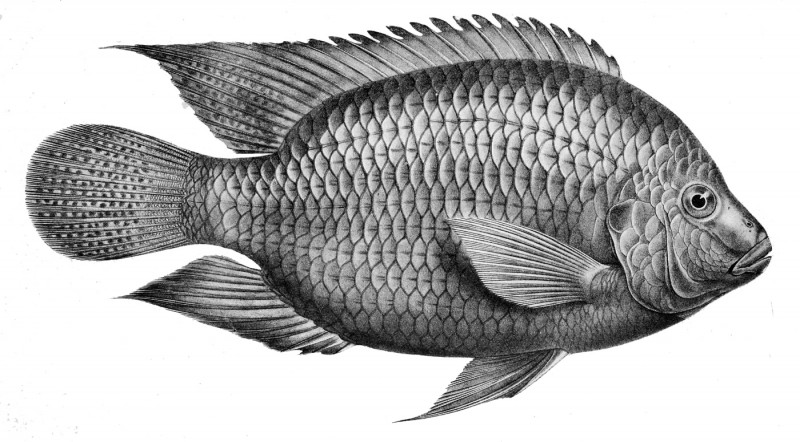 Fish is stereotypically the healthiest type of meat, and it is something that doctors often encourage people to eat because of its health benefits. Fish is generally lean, high in protein, low in saturated fat, high in omega-3 fatty acids, and high in vitamins and minerals. Common vitamins and minerals found in fish are vitamin B, vitamin D, vitamin A, iron, selenium, zinc, and iodine.
Fish is stereotypically the healthiest type of meat, and it is something that doctors often encourage people to eat because of its health benefits. Fish is generally lean, high in protein, low in saturated fat, high in omega-3 fatty acids, and high in vitamins and minerals. Common vitamins and minerals found in fish are vitamin B, vitamin D, vitamin A, iron, selenium, zinc, and iodine.
Not all kinds of fish are created equal, though.
Eating healthy fish regularly reduces your risk of heart disease and dementia, among other illnesses. Many types of fish that you know of are healthy, but tilapia is not among them. Some health professionals have said that, when compared to bacon, tilapia and certain other farm-raised fish varieties can be even worse for your health.
Bacon is high in bad fats and cholesterol, and can contribute to heart disease. It’s important to eat fish, but it’s even more important to make sure that you’re eating the right kinds. There are two basic categories of fish: wild-caught and farm-raised. There are pros and cons to each type, but wild-caught is definitely the healthier variety.
Commonly farm-raised fish types include tilapia, cod, seabass, catfish, and salmon. Some healthy wild-caught fish are salmon, tuna, and sardines. When comparing the average serving of tilapia to the average serving of bacon, the tilapia is often higher in saturated fat, calories, and cholesterol, not to mention toxins acquired through the fish farming process.
Wild-Caught
Wild-caught fish roam freely in the water, eating aquatic vegetation, insects, smaller fish, et cetera. Because of the variety of food sources available, the meat of wild-caught fish contains more vitamins and minerals than that of farm-raised fish. Wild-caught fish have tons of healthy omega-3 fats and quite low levels of unhealthy fats; omega-3 fatty acid content is one of the biggest health reasons that people strive to eat more fish.
Wild-caught fish have fewer toxins, are less prone to disease, and are not frequently treated with antibiotics like farm-raised fish are. Wild-caught fish have more room to swim around and thus contain more muscle, which translates to lean protein for consumers. Wild-caught fish are healthier than farm-raised fish are, but they’re more expensive. There is also the problem of overfishing: taking too many wild-caught fish out of their habitats can throw the area’s food chain and overall ecology seriously out of whack. Unfortunately, it would be impossible to meet consumer demand using wild-caught fish alone.
Farm-Raised
Farm-raised fish tend to have more “contaminants” than wild-caught fish do. This may mean PCBs, antibiotics, and toxins in general. These fish are sometimes fed smaller fish that are caught in the same area, which increases the levels of toxins in the fish. Farm-raised fish tend to have higher levels of saturated fat, lower levels of healthy omega-3 fats, and less protein. These fish are contained in smaller, regulated areas of water, and so they are much more prone to disease.
Antibiotics are necessary to treat these diseases, and those same antibiotics are often present in the meat that people consume; this can be a major health risk for consumers.Their diets are very regulated and less comprehensive than a wild diet; the fish consume fewer vitamins and minerals, such as calcium and iron, because of their limited diets. This translates into less nutrient-dense meat for consumers. Farm-raised fish are generally less healthy to consume, however they are much cheaper to produce than wild-caught fish are. Having fish that are raised on a farm helps reduce the issue of overfishing.
Clearly, there are quite a few health concerns that arise when discussing farm-raised fish. If it were possible for everyone to have as much wild-caught fish as they desired and it not annihilate the wild populations, then fish farms would not be as common.
Overfishing is already a major concern, and so fish farms are unfortunately necessary. In some cases, farm-raised fish may simply have slightly less nutrients than wild-caught fish do. In other cases, the fish may contain high levels of certain toxins.
There are regulations on the levels of major toxins found in fish, but if you consume farm-raised fish very regularly, then some toxins can build up in your body and cause issues. Having considered the basic ways that farm-raised fish are less healthy than wild-caught fish, here is why farm-raised tilapia is particularly bad for you – sometimes even more unhealthy than bacon.
The Problems With Tilapia (And Farm-Raised Fish Overall)
- Farm-raised tilapia causes inflammation. Chronic inflammation throughout the body is a major concern for millions, but especially so for those on the standard American diet. Inflammation is linked to asthma, allergies, heart disease, arthritis, Alzheimer’s, and hundreds of other diseases. For those with existing inflammatory diseases, regular consumption of tilapia can exacerbate symptoms. A famous study published in 2008 by researchers at Wake Forest University demonstrated that tilapia has the potential to cause even more inflammation in the body than bacon and hamburgers do – and that is really saying something!
- Almost all farm-raised fish will contain antibiotics and pesticides out of necessity. Hormones are also sometimes used with farmed fish in order to make them grow faster and larger. That does not mean that it is safe to consume them, especially on a consistent basis. These things are regulated and probably won’t cause immediate harm, but long-term consumption definitely can. Consumption of antibiotic-treated meat has been shown to directly lead to gastrointestinal disease.
- These fish are fed a regulated, nutrient-poor diet, often in the form of pellets. The food is often contaminated with toxins and may contain known carcinogens. The fish are what they eat – and if there are toxins in their food, then there will be toxins in our food, too.
- They tend to have less healthy fats and more unhealthy fats. They also have fewer minerals like iron and zinc due to their diets. The numbers aren’t that shocking, but by comparison, wild-caught salmon is way healthier.
- Dibutylin is often found in farm-raised tilapia. This chemical is known to be harmful to humans and animals, especially in terms of its inflammatory properties. Another study published in 2008 found that dibutylin disrupts both immune system function and metabolic function in humans.
- Dioxin is a chemical that is present in the water. It is an awful carcinogenic chemical pollutant that is in the water because of humans; for example, discarding bleach down the drain increases the level of dioxin in the water. Since fish breathe through water, their bodies contain dioxin as well. Dioxin is a potential issue for practically all seafood, though it certainly doesn’t help tilapia’s case here.
Other farm-raised seafood, such as shrimp, can be just as bad. While there are regulations, they don’t necessarily protect consumers enough. Avoiding farm-raised seafood may not always be possible, but due to the increased levels of toxins in the meat, it should definitely be limited. If you were to consume farm-raised seafood often enough, the levels of certain toxins, as well as antibiotics and hormones, would build up in your body. As far as health goes, wild-caught fish are the better option, especially those that are naturally high in omega-3 fatty acids, such as salmon. On occasion, farm-raised seafood probably isn’t going to do too much harm.Just be sure to do your research and avoid particularly unhealthy kinds like tilapia.
To protect yourself from detrimental effects of the farm-raised fish, go to the next page and find out how you can boost your immune system –
About the Author:
Emma Deangela is the best selling author of The Alkaline Diet Program and 80/20 Fat Loss. She has helped over tens of thousands of men and women to lose weight and transform their health with sound nutrition advice.
Which wonderful friends in your life would appreciate this information about knowing more about the fish they eat?
Please help them by sharing this eye-opening article with each of them using any of the social media and email buttons below.


Leave a Reply